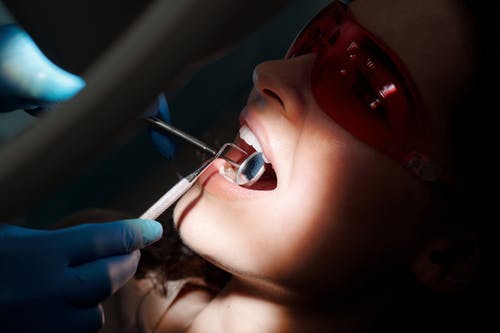A broken tooth is one of the most common dental problems that can happen to anyone at any age. There are many reasons for a broken tooth, such as an accident, chewing on hard food, or grinding your teeth. If you have a fractured tooth, it is important to see an emergency dentist right away so that they can figure out the best treatment for you.
Depending on the extent of the damage, you may need to have the tooth extracted or repaired with a filling or crown.
What Should You Do if You Have a Broken Tooth?
Here are tips on what to do after you have a broken or fractured tooth:
- Wash your mouth with warm water to clean the area around the damaged tooth.
- Apply a cold compress to your cheek to reduce swelling.
- Take an over-the-counter pain reliever if you are in pain.
- If the tooth is sharp, you can place a piece of sugarless gum over the tooth to protect your tongue or cheek while you wait to see the dentist.
- Do not attempt to fix the tooth yourself. This could further damage the tooth or injure your mouth.
- See your dentist, like The Pasadena Texas Dentist, as soon as possible. Click here to learn how it works.
Is It Possible to Break a Dental Implant?
A dental implant is a long-lasting dental treatment that can help with missing teeth. While they are durable, they can also be subject to breakage due to an accident or trauma to the mouth. Visit your dentist right away if you think you have broken your dental implant to avoid complications or further damage.
How Is a Broken Tooth Treated?
Treatment for a broken tooth differs depending on the severity of the damage. In some cases, your dentist may be able to repair the tooth with a filling or crown. But if the damage is severe, you may need to have the tooth extracted.
What Are the Complications of a Broken Tooth?
If left untreated, a broken tooth can result in some complications, such as:
- Infection. If the tooth is infected, it can lead to an abscessed tooth, which is a serious condition. If this occurs, you need to have the tooth extracted.
- Nerve damage. A broken tooth can damage the nerves in your mouth, leading to pain and numbness. Sometimes, you may need to have surgery to repair the damage. Note that this can be permanent.
- Tooth loss. If a tooth is severely damaged, it may need to be extracted. If this happens, you need to replace it with an artificial tooth to avoid problems with your bite, shifting teeth, and gaps in your smile.
- Damage to other teeth. If you have a broken tooth, it can damage other teeth in your mouth if it is not appropriately treated.
How to Avoid a Broken Tooth?
You can take a few measures to avoid a broken tooth. These include:
- Wear a mouthguard when playing sports.
- Don’t use your teeth to open items, such as bottles or packages.
- Avoid chewing on hard foods, such as ice or candy.
- Don’t grind your teeth. If you have bruxism or teeth grinding, your dentist can fit you with a mouthguard to protect your teeth.
- If you have a dental appliance, such as a retainer or dentures, ensure it fits properly. Ill-fitting appliances can put stress on your teeth and cause them to break.
- Take care of your teeth by brushing and flossing regularly and seeing your dentist for regular checkups and cleanings.
- Maintain at least two regular appointments per year with your dentist for professional checkups and cleanings.
Final Thoughts
A broken tooth can become a serious problem. If you experience this dental problem, see your dentist immediately so they can assess the damage and determine the suitable treatment. By taking preventive measures and visiting your dentist regularly, you can help avoid this problem.




